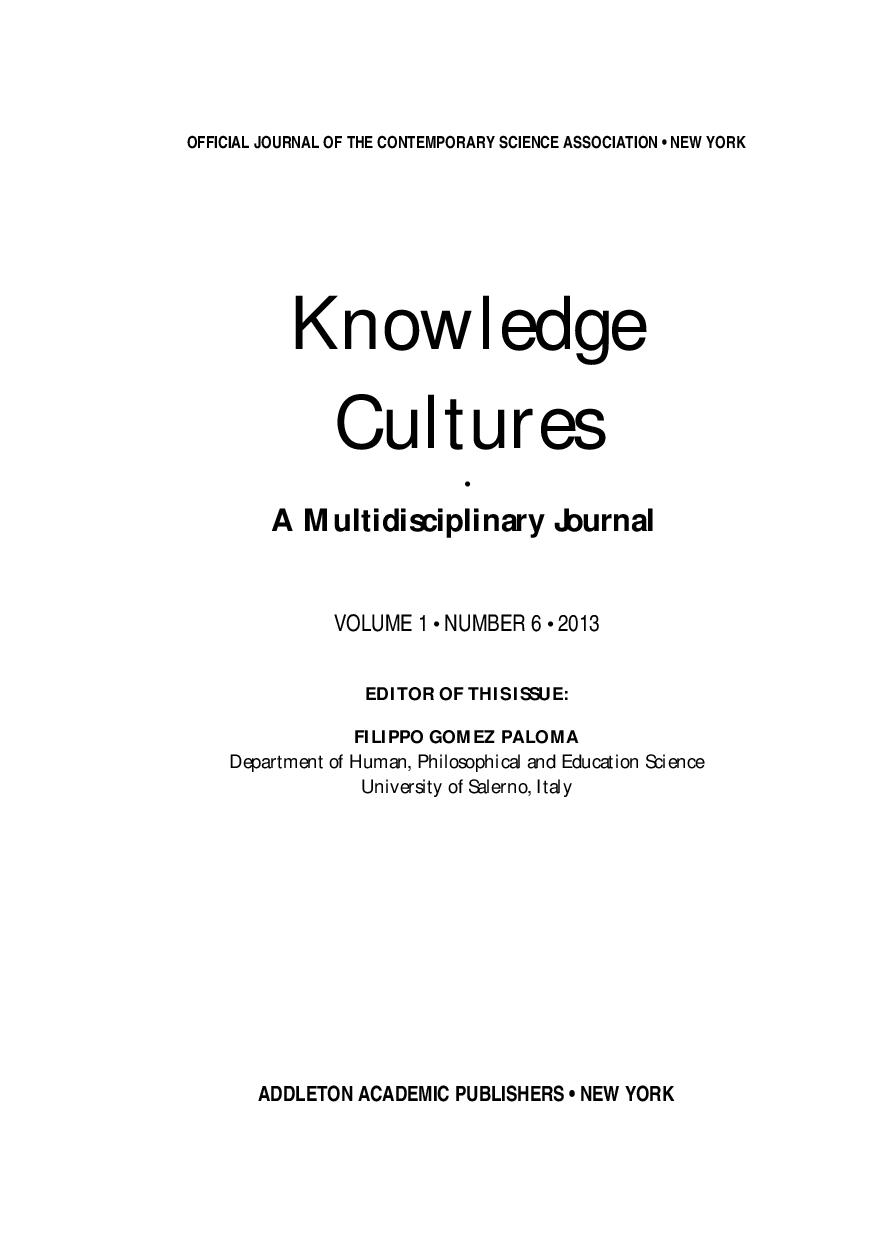BODY KNOWLEDGE AND MOTOR SKILLS
BODY KNOWLEDGE AND MOTOR SKILLS
Author(s): Gaetano RaiolaSubject(s): Education, Psychology, Sociology
Published by: Addleton Academic Publishers
Keywords: Cognitive approach; Ecological Dynamics approach; Motor control
Summary/Abstract: The didactics is traditionally taught by the coach/trainer/teacher with tutorials that have their theoretical basis in the Cognitive approach. It means that the coach/trainer/teacher illustrates the tutorials and the error correction is made by the coach with verbal rules. The tutorials are of Partial, Varied, Randomized and Mental Training type. They refer to the theories of the open-loop motor control, closed-loop motor control, and Generalized Motor Program. Teaching Methods of Physical activity is also imparted by another approach called the Ecological Dynamics approach where the coach does not require the tutorials, but builds a setting of learning environment aimed at a variety of learning models. It refers to the models for the control of the Motor Imagery and Freedom Degrees. The first one could be in first person and in third person; the second one consists of three consecutive steps: Reduction, Exploration and Capitalization of the degrees of freedom. The aim is to study the issue of the Motor Control theory and its relation to the learning process and the body knowledge. It carries out specific aspects of the learning approach. The main results show two types of correspondences: 1) between the Cognitive approach and motor control closed loop, open loop and generalized motor program; furthermore, there is a significant correspondence among order, demand, sequence and timing of movement learning: 2) between the ecological dynamics approach and motor control Motor Imagery and Freedom Degrees; furthermore, there is a significant correspondence among setting, learning environment and specific strategies of teaching methods such as cooperative learning, role playing, circle time, brainstorming, peer education, tutorship, focus group. In this way both the invasive role of the coach/trainer/teacher in cognitive approach and non-invasive role in the ecological dynamics approach are clearly shown.
Journal: Knowledge Cultures
- Issue Year: 1/2013
- Issue No: 06
- Page Range: 64-72
- Page Count: 9
- Language: English
- Content File-PDF

